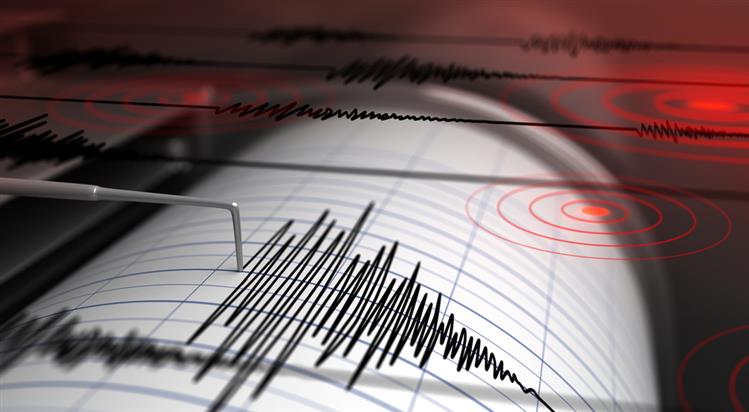
BLOG
- ELİTE WORLD HOTELS & RESORTS
- BLOG
- WHAT TO DO WHEN THERE IS AN EARTHQUAKE HAPPENİNG?
What to Do When There Is an Earthquake Happening?

Earthquakes, which are proof that the earth shows the signs of life, are one of the inevitable facts of our country, which is largely located in the earthquake zone. You can save both your own life and the lives of your loved ones by becoming conscious of this natural phenomenon that we have experienced painfully many times in the past. Here's what you need to do to survive a possible earthquake with the least damage.
1. Make Sure the Building You Live in Is Constructed in Compliance With Earthquake Regulations
Make sure that the residential area in the region where your house is located is earthquake resistant. In addition, make sure that the house you have determined as a living space is built in accordance with earthquake regulations, is inhabited and is suitable for zoning. Thus, it is possible to survive the earthquake with less damage.
2. Secure Your Items to Have a Safe Living Space
In the event of a sudden jolt, unsecured items can pose a life-threatening risk to you. For this reason, after making sure of the safety of your building and home, you should make sure that your belongings are not a danger to you. You can minimize possible damage by fixing large and heavy furniture such as cabinets and bookshelves to the wall. In addition, you can put locks on the doors of the cabinets with items in them, so you can prevent the items from falling on you.
3. Prevent Combustibility and Flammability from Endangering Your Life and Safety in a Potential Danger
It is known what a great risk to human life is that flammable and combustibles pose even at any given time. This danger increases in the event of a possible earthquake. To minimize the danger, you can make sure to keep toxic, flammable, and combustible liquids in a closed and fixed area. You can also mark these items with identifying tags.
4. Prepare an Earthquake Bag
After providing the safety step at home, the next step is preparing an emergency kit to help you survive. You should keep vital items such as water, whistle, pocketknives, underwear, raincoat, and hygiene kit in your earthquake bag. It is very important that you include foods that contain high calories and carbohydrates that are rich in vitamins and will not spoil for a long time. You should also keep copies of your ID, passport, driver's license, a title deed and if any, your pet's documents in this bag.
According to the information provided by AFAD, we can list the items that must be included in the disaster and emergency kit in detail as follows:
Food
Foods that contain high calories, vitamins, and carbohydrates, prevent water loss and are durable (not perishable) (Canned, dried fruits, tahini-molasses, fruit juice, etc.).
Photocopies of important documents
- Identification cards (ID card, driver's license, etc.)
- Title deed, insurance, license documents
- Mandatory Earthquake Policy
- Diplomas
- Passport, bankbook etc.
- Other (pet health card, etc.)
Clothes
- Underwear
- Socks
- Raincoat
- Clothing suitable for the climate
Water
Adequate drinking water should be taken with each family member in mind.
Hygiene supplies
- Soap and disinfectants
- Toothbrush and paste.
- Wet wipes
- Toilet paper
- Sanitary pad
Other materials
- First-aid kit
- Sleeping bag or blanket
- Pocket knife, whistle, small scissors
- Paper, pen
- Battery-powered radio, flashlight, and spare batteries (durable/long-life battery should be selected)
5. Periodically Review the Items in Your Earthquake Bag
We may not know on what day and at what time an earthquake will occur but being prepared for a possible danger at any time can be a life-saving measure. For this reason, you can make earthquake assessments with your family at certain periods. By reviewing your emergency bag, you can make up for the deficiencies and replenish foods and liquids.
6. Try to Keep Your Calmness During a Disaster
You can take your personal precautions by paying attention to the things to be considered before the earthquake. In addition, you need to learn exactly what to do in the event of an earthquake. When you feel the shaking, you should be calm at first and make sure not to panic. Thus, you can make the right decisions and ensure that your family makes the right decisions without panicking.
7. Take Positions in Regions That Will Create a Triangle of Life and Spaces That Provide Movements
You should create a triangle of life for yourself by crouching or lying down next to items such as a bed, armchair and table with a strong skeleton, of which you are sure of their safety and durability in the event of an earthquake. These sections give you room to move and prevent you from getting stuck. You can protect yourself from deadly strikes by applying the techniques of KNEELING -FETAL POSITION to protect your head and neck - HOLD ON to not fall.
8. Avoid Dangerous Places such as Stairs, Balconies and Elevators
The areas with the highest probability of collapse in the event of an earthquake are balconies and stairs. Elevators, on the other hand, are at least as unsafe as they are compressed by pressure. Therefore, try to stay away from unsafe areas such as stairs, balconies, and elevators as much as possible in the event of a disaster.
9. Use Your Phone Only for Emergency Calls
In case of an earthquake, busy phone lines can cause some problems, other than for emergencies. Lines may be locked due to congestion and operators may have difficulty in providing communication services. In order to prevent such situations, it is extremely important that you only use your phone to report emergencies and fires.
10. Avoid Hazardous Sources such as Natural Gas and Electricity
Gas and electricity leakage may occur in earthquake disasters. When you are sure that the shaking has passed, you can prevent natural gas leakage by closing the gas valve. In addition, it would be much more accurate to choose the flashlights in your emergency bag instead of using the light switches in case of a disaster. During this time, it is very important to stay away from flammable materials such as lighters or matches.
11. After Making Sure the Quake Has Passed, Leave the Building in Compliance With The Exercise Management Methods
If you survived the earthquake safely without any damage, you should first check your health and then your family's health. After making sure that everyone is in good condition, you can safely leave the building and go to the earthquake-gathering area of your region, considering the appropriate conditions.
12. Wait for Medical and Rescue Teams If You're Stranded
If you are stuck in a place during a disaster, you should keep your cool and wait for the rescue teams to arrive. You can try to make your voice heard by the teams with the help of the whistle in your earthquake bag. In this process, you should be careful not to take any action that will endanger your health.














